Opinion
THE GREAT IWUDE IJESA FESTIVAL: WE MAY EMULATE, BUT NOT REPLICATE OR COPY ‘OJUDE OBA’.
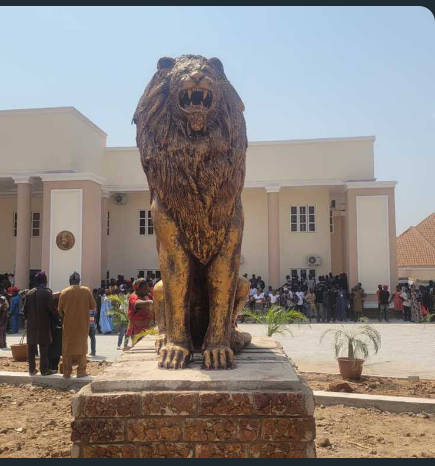
By Omole Oluwasegun
Culture is viewed and known as the way of life of a particular set of people, the ideas, customs, and social behaviour of a particular people or society. It is the code of manners, language, religion, rituals, values, symbols and arts passed down from generation to generations.
A people can thus be identified or identify themselves through their culture, learned and shared through one generation to the other.
Akin to culture is the cultural tradition of a particular set of people, which refers to the inherited, established, or customary pattern of thought, action, or behavior.
This brings me to the important issue of the recently concluded “OJUDE OBA” of Ijebu Ode, and with respect to the Great IWUDE IJESA FESTIVAL which is celebrated annually by the people called, IJESAS. A lot of people carried away by the hyped dress-mode and costumes by the participants at ‘OJUDE OBA’ have been suggesting and calling on the organizers of IWUDE IJESA to begin to copy or duplicate the activities of OJUDE OBA.
The OJUDE OBA is not a traditional festival like, OLOJO, ILE IFE;
KIRIJI FESTIVAL, IMESI;
OSUN OSOGBO, OSOGBO;
IWUDE IJESA, ILESA and so on.
OJUDE OBA is celebrated in honor of Oba Awujale Ademuyewo Afidipotemole who gave a slave called Alli-Tubogun the permission to practice Islam in public space and without obstruction, molestation or fear of persecution. OJUDE OBA is therefore, most unlike the aforementioned Traditional Festivals which are celebrated in honour of certain Deities and gods to show their values and how their worshippers rate them. There’s no cogent cultural or traditional significance associated with OJUDE OBA besides the extravagant and intensive publicity and promotion of Yoruba Dress Code otherwise known as Aso-Ebi.
In the case of IWUDE IJESA, OWA Obokun Adimula, the paramount King and Ruler of IJESALAND is the Chief Celebrant and the Chief Host. Unlike, OJUDE OBA where Awujale is invited to witness social activities and Sallah Entertainments by different age groups and families in exotic Yoruba costumes as well as pageantry music and dances, IWUDE IJESA FESTIVAL is led by OWA OBOKUN ADIMULA himself and almost every traditional ruler in IJESALAND has a role or more to perform in the historic 30 days age long traditional and cultural activities.
In IWUDE IJESA FESTIVAL, it’s the people, Ijesa sons and daughters together with their friends that gather to witness the exotic, unique and amazing Yearly Royal Parade by Owa Obokun of IJESALAND, not just dancing, but performing Traditional and Cultural functions within specific towns, and homes in IJESALAND and ILESA. He will offer “IWURE”, that’s core traditional prayers, pay routine homages to the Courtyards of Yeye rise, Obaala, SAWE, Lejoka and Salatun in evidence of our unique heritage and our touch of sophistication. Each courtyard has a significant role in IWUDE IJESA FESTIVAL. Yeyerise is the Head of the Women and her courtyard is Owa’s first place to visit. At Obaala Courtyard, OWA has a role to play in honor of OWA OBOKUN, OWARI. At SAWE ILESA Courtyard in Ijamo, OWA is received by Eminent Ijesa sons and Daughters, and to a befitting reception and entertainment. Lejoka is the Chief of Defence Staff in IJESA military tradition, and there in his Courtyard, Owa Obokun will observe another pact by Ijesa warlords with OWARI to show and reaffirm the absolute submission and loyalty of the Ijesa military force to the authority of OWA OBOKUN ADIMULA. A mock battle is usually held between Lejoka and Loro, the Head of OWA OBOKUN Defence Corps as part of the rituals.
At Salotun Courtyard, Owa Obokun is transformed into “ORISA”, he changes into the Traditional Dress of his Fathers, wears the Original Crown from the cradle and mounts podium to Pray and Bless the people, IJESALAND, Osun State and Nigeria.
It’s important to state that a month, each year is dedicated to celebrate IWUDE OGUN which transformed to IWUDE IJESA FESTIVAL. Ogun is a Pathfinder and God of iron. It’s a deity that is very crucial to IWUDE CELEBRATIONS, as the history of IJESAS is linked to Ajibogun Onida Arara, the most accomplished son of Oduduwa, the progenitor of Yoruba Race. Ijesas are undisputed warriors that never suffered any defeat or enslaved in any circumstance.
The sword 
Apparently, people of IJESALAND are all involved in IWUDE IJESA FESTIVAL. From Ipole to Obokun; from Igbadae to Lemodu; from Ipetu to Ijebu Jesa; from Esa Oke to Imesi; from Erin Ijesa to Iloko, all over IJESALAND the significance of IWUDE IJESA FESTIVAL cannot be overrated.
The Grand Finale is merely the gathering of Ijesa sons and daughters as well as special guests at the ADIMULA Square to celebrate IWUDE IJESA with OWA Obokun and all the Obas as well as Chiefs in IJESALAND. At this gathering, different societies, cults and clubs are given special recognitions and spaces for Entertainments. They come in different Aso Ebi too. The unique difference between the gathering of Ijesas at Adimula square and the gathering of Ijebus at OJUDE OBA is the age groups arrangement and their extravagant display of dresses as their identities. In the IWUDE affairs, the protocol is exceptional, unique and superb. From First Class Traditional Rulers, Loojas, High Chiefs, Chiefs, Representatives from towns and villages, clubs, societies and organisations, each come to pay homage to Kabiyesi, Owa Obokun Adimula in sequences.
Chief Afolabi Igbaroola and his team at the IWUDE IJESA Planning Committee have been making careful efforts at involving or introducing the age groups idea, but in such a way that the essence of IWUDE IJESA FESTIVAL will not be bastardized or adultrated.
It might therefore be practically unwise to replicate OJUDE OBA in IWUDE IJESA without giving due considerations to the cultural or traditional differences between the Ijesas and the Ijebus, and without giving due diligence to the backgrounds of the IWUDE IJESA against the backgrounds of OJUDE OBA. So far as it is, the two events are not related in anyway, the participants are not the same in so many ways traditionally, so also the audience.
We as Ijesas have our own pride, our prejudices and our touch of honor, we are like the Oyos, who will not copy others lifestyles….”a ji se bi oyo laari, oyo o ki n se bi enikookan”. We are Omo OWA and therefore, should maintain our basic cultural heritage, practice it in the ways and manners it was handed over to us from ages past. If we have to bring in modern ideas, it must be carefully assessed and selected as not to destroy the intrinsic and extrinsic values, visions and missions of our own customs and traditions.
To this end, every age group wishing to participate in IWUDE IJESA should be made to contact the IWUDE Secretariat with valid constitution which spells out the activities of such group, its contributions to the development of IJESALAND, and the expected values the group may wish to add to our culture and tradition as well as the promotion of Tourism in IJESALAND.
The IWUDE Secretariat must do a thorough job at scrutinizing such age groups and ensure they meet certain criteria for registration.
Omole Oluwasegun, Omo-Osodi
Write from Ilesa, Osun State
omoleadeyemi@gmail.com
Opinion
“Chief. Dr. Ekuogbe Akpodiete; A Philanthropist, Lawyer, and Statesman”
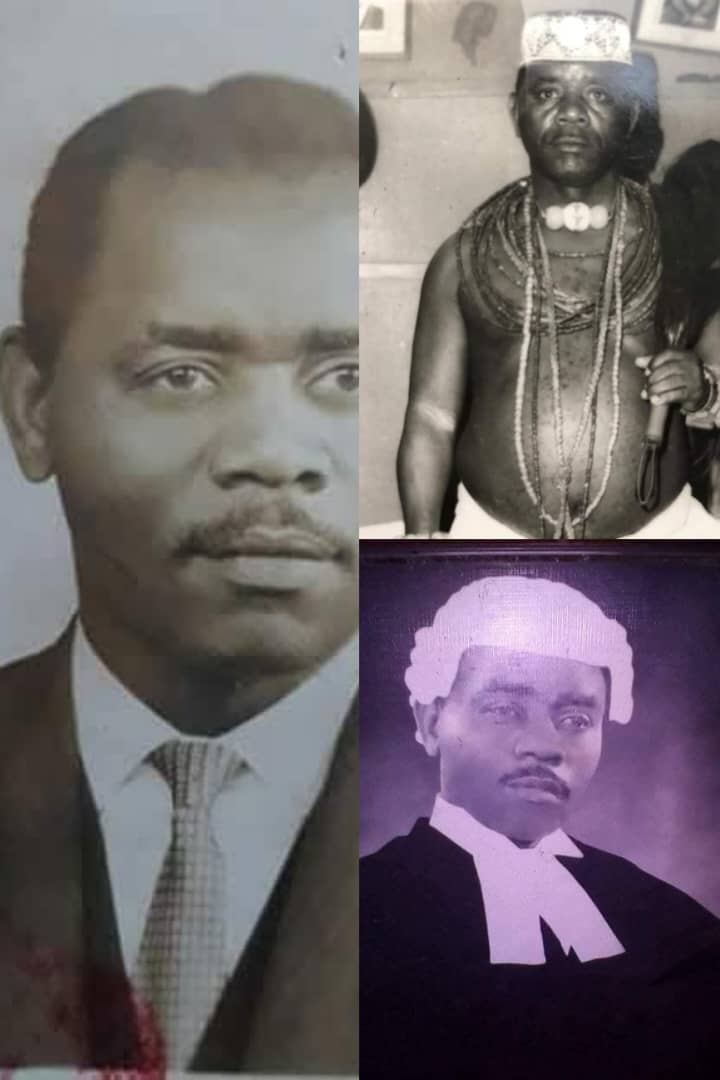
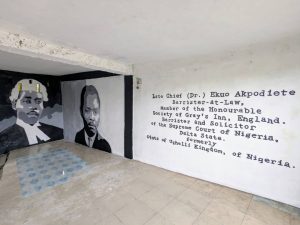
In a life of achievement, Chief Ekuogbe Akpodiete popularly called the Duke by his contemporaries in the UK was an assessment clerk, post office clerk, a court interpreter, an educationist, a business man, a political party chieftain, a Barrister and Solicitor, a Magistrate, the Otota (the Prime Minister) of Ughelli kingdom which is the highest traditional chieftaincy office that underpin the royal office of the Ovie of Ughelli Kingdom.
He was a trail blazer, a strict disciplinarian, a lover of people, and a philantropist. He saw to it that people lived in peace and happiness.
Born on the 4th of April, 1924, to parents cut from an industrious mould, Chief Ekuogbe Rowland Gregory Akpodiete took zealously to education that neither his mother Ughweriaka who was a trader, nor his father Akpodiete who was a farmer had.
He attended the Native Authority Primary School, Ughelli, and Enitona High School, Port Harcourt, for his secondary school education.
He thereafter had a brief teaching career in primary schools in Ofuoma near Ughelli, he worked as a process clerk in the then Sapele Township Department between 1950 and 1953, serving at the same time as an interpreter in the local courts.
He proceeded to the United Kingdom to seek the proverbial Golden Fleece where he worked and paid his way through, studying Law. He was admitted into the Honourable society of Gray’s Inn, England, in 1965, and shortly after, he returned home to Nigeria and attended the Nigerian Law School. He was called to the Nigerian Bar in 1966. He immediately started practice in Lagos. However, his practice in Lagos was regrettably abridged by the Nigerian Civil War, which drove him to his hometown Ughelli in 1967, where he continued to practise among his kith and kin as the first Legal Practitioner.
Chief Ekuogbe Akpodiete established himself in Ughelli. After the civil war, he served in the now defunct Mid-western State Judiciary from 1972 to 1975 as a Magistrate.
He was conferred with the chieftaincy title of Urhukperovie of Ughelli kingdom (the light of the King) by the then reigning Ovie of Ughelli, His Royal Highness Oharisi II of blessed memory in 1977.
In the quest for more knowledge, he went back to England for his Master’s degree in law (LL.M) and later a Ph.D. at the University of Warwick.
He was awarded an honourary doctorate degree (Ph.D) by Tenesse Christian University from the United States of America in 1991.
He became the Otota (the Prime Minister) of Ughelli Kingdom in 1986, an office he occupied until his demise on 9th April 1995.
Chief Ekuogbe Akpodiete was also politically involved. In the heady days of the Awolowo-led Unity Party of Nigeria, he was the party’s legal adviser in Ughelli and was on hand to assist during Chief Obafemi Awolowo’s campaign hosting in Ughelli and its environs.
In view of his love for people and entertainment, he established a popular cinema house, one of the first in Ughelli, known as REGA cinema, coined from his names, alongside an entertainment place called Unutakunu (people talk to people).
Chief Ekuogbe Akpodiete was blessed with wives and many children, grandchildren, and great grand children.
Mr. Olotu Akpodiete, PhD
Executive Director
Olotu & Ekuogbe Rowland Akpodiete foundation
Opinion
OF ABUJA INVESTMENT COMPANY, TAMUNO, WIKE, AND TINUBU’S “RENEWED HOPE” AGENDA
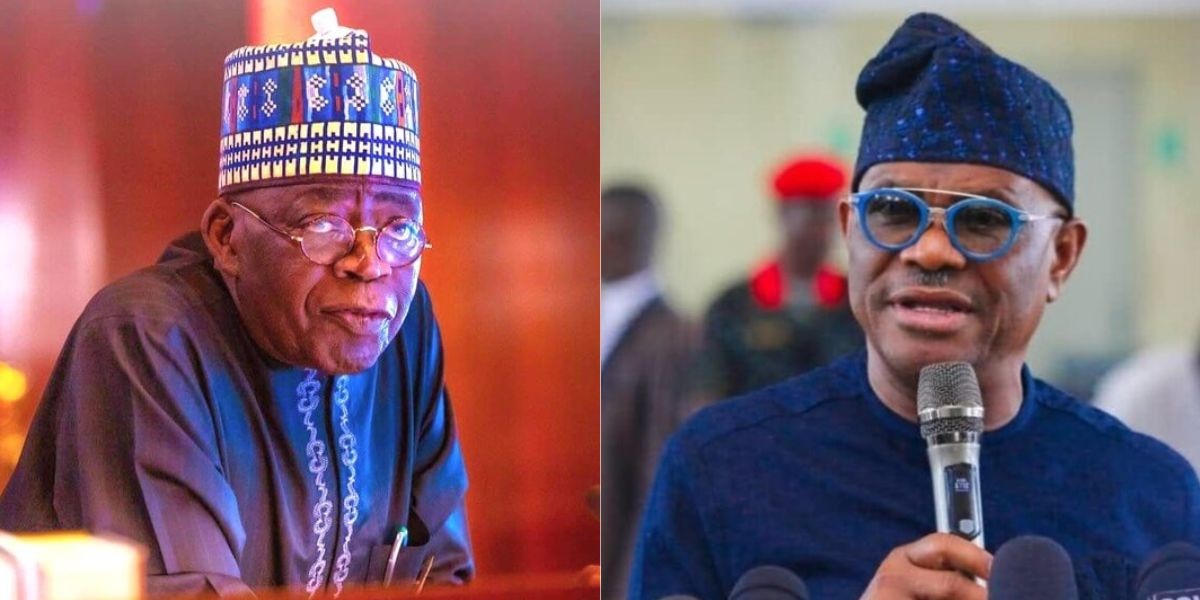
BY BOLAJI AFOLABI
Established in 1994 by the military administration of late General Sani Abacha, the Abuja Investments Company Limited, (AICL) is positioned as a government-owned investment enterprise charged with the responsibility to drive economic development in the federal capital territory. Its primary goal is to promote strategic investment and boost realistic economic growth of the FCT through different platforms and various approaches. Key functions of the AICL include Business Development; Investment and Development; Public-Private Partnership; Facility Management; and Infrastructure Development. The AICL has several subsidiaries and associates including Abuja Property Development Company, (APDC); Abuja Markets Management Limited, (AMML); Abuja Urban Mass Transport Company, (AUMTCO); Abuja Technology Village Free Zone; Abuja Film Village International Limited; PowerNoth/AICL Equipment Leasing Company. Others include Aso Savings and Loans PLC; Abuja Power Company Limited; Abuja Leasing Company; and Abuja Downtown Mall.
From 1994 till the exit of the military from national governance in 1999, the AICL recorded few achievements. During this period, the AUMTCO, and Aso Savings and Loans were established. With the dawn of democratic government in 1999, it was expected that the FCT, being an emerging federal capital will benefit hugely from the activities of the AICL. However, nothing much was achieved between 1999 and 2003. Somehow, Mallam Nasir El-Rufai, who administered the FCT from July 2003 to July 2007, was able to change the tide. Under his watch, the AICL came alive, recorded some measure of visibility and attracted positive public perception. Sadly, the AICL took a downward slide thereafter. None of the past ministers; Aliyu Modibbo Umar, Adamu Aliero, Bala Mohammed, and Muhammed Musa Bello provided the necessary political will and support for the AICL to maximally attain full potential. Indeed, it got worse between 2015 and May 2023 that many residents forgot that the company was still existing.
Many critical stakeholders were worried about the depth of neglect, static state, and institutional damage that the AICL was subjected to. Patterned after similar agencies in some developing nations, where measurable strides are achieved, the reverse happened with the AICL, that it became recurring causes of worries, and regrets to many people. Alhaji Aminu Mohammed, a former staff member of FCTA said, “it was shameful that the company remained largely dormant for many years.” Corroborating, Mr. Gilbert Gyang, an Abuja based investment expert declared, “the AICL, especially during the last administration was arguably comatose. It merely existed on paper, there was no visible investment initiative geared towards economic growth in the federal capital.” For Ms. Winifred Anosike, former banker, and development consultant, “it’s painful that the company was practically inactive for years. It was not only affecting economic growth in Abuja but impacted negatively on people and firms with result-driven initiatives who desired to contribute actively to the development of the capital city.”
With the emergence and subsequent inauguration of President Bola Tinubu on May 29, 2023, key players in the investment sector were hopeful that, the AICL may breathe again. Many hinged their thoughts on Tinubu’s background and experiences in accounting, financing, investment, governance, and leadership. Though with caveats; the choice of who minister’s FCT will be pivotal. Convinced that the AICL should be the “engine room” of economic growth and development of the capital city, many hoped that Tinubu will deploy the appropriate person to oversee the strategic ministry. Some stakeholders concluded that a wrong choice may consign the AICL into the “wilderness of inactivity” and likely extinction. Somehow, key players in the investment sector, at different fora and platforms were upbeat that Tinubu will pick the right person, who they hope will lead the way towards enabling the AICL to get back its mojo.
In August 2023, the deployment of Barrister Nyesom Ezenwo Wike as the Minister of the FCT; the 8th since Nigeria’s return to democratic government elicited public endorsement. Tinubu’s choice was largely celebrated by many stakeholders, as it renewed optimism about the prospects of AICL reviving its activities. Cognisant of Wike’s legendary achievements, as Rivers state Governor where he embarked on massive infrastructure development and more, turning the “Treasure Base” to the central investment hub in the South South zone, and emerging as second to Lagos state, many were confident that “light will come” to the AICL. A similar spate of enthusiasm and expectations was prevalent in and around the AICL. Many of the staff members also shared the positions.
The atmosphere at the Garki District offices of AICL on April 7, 2024 was ecstatic when news filtered in that Wike had appointed Dr. Maureen Tamuno as the Group Managing Director. A few hours later, it turned to frenzy after goggle checks were done by some staff members to have glimpses of her profile. Impressed, and satisfied with her multi-disciplinary academic background, and multi-faceted careers, her appointment was described as well-thought, and well-deserving. The unanimity of opinion was that, being a round peg in a round hole, the AICL will leverage on her far-reaching experiences and exposures as a former lawmaker, seasoned diplomat, public administrator, and boardroom strategist.
Aware and ready for the challenges ahead, many staff members were visibly excited when Tamuno assumed office the following day. Thus emerging as the first female chief executive of the AICL, since its 30 years of existence. Described as an accomplished technocrat with identifiable achievements in leadership, strategy, diplomacy, administration, and consulting, Tamuno, in her maiden speech confirmed the postulations of staff members. She emphasized her, “commitment to open-door policy to all staff, urging everyone to operate at the highest standard of transparency, confidentiality, accountability, and ethical business practices.” Continuing, she assured staff members that her, “strategic approach and consumer-centric philosophy are expected to propel the AICL to new heights of success.”
From reports, challenged by the enormity of the task ahead, conscious of the hugely untapped potential of the AICL, buoyed by the political support of Wike, and encouraged by the passion of the staff members, Tamuno literally hit the ground running. As a globally-recognized business development, management, and investment professional, she approached her assignment with iron-cast resolve, and the precision of a surgeon. First off, she embarked on critical reviews and overview of the AICL trajectory from inception; identified germane issues; evolved strategies for re-positioning the company; enunciated quick-wins, short-term, medium-term, and long-term measures for development, and some others. All these were geared towards delivering (or surpassing) the Ministerial mandate, and also ensuring that the AICL contributes its quota to Tinubu’s “Renewed Hope” agenda.
Indeed, it is imperative to note that the AICL, under the superintendent of Tamuno has literally drawn water out of rocks; which before now was largely unthinkable. That the soft-spoken and resourceful amazon; and her team were able to make noticeable impact within just one year, speaks volumes about her ingenuity, and indomitable spirit. In a broad sense, these achievements include encouraging economic diversification; expanding investment opportunities; exploring business and investment exchanges; deepening subsidiaries collaboration; and fostering diplomatic relationships.
In practical terms, the AICL, through some landmark initiatives has provided the platform for the promotion of trade and commerce, as well as economic growth and sustainable investment in the FCT. It is imperative to recall some of these laudable and trail-blazing projects. A few days back, the solar powered Farmers Market in Utako District and Kugbo International Market were commissioned by the FCT Minister of State, Dr. Mariya Mahmud. Speaking at the epoch making events, Mahmud eulogized Tamuno for completing the first-of-its-kind projects which, “would provide employment opportunities for a wide range of people in line with the “Renewed Hope” agenda.” While explaining that the projects are under the Public Private Partnership initiative of the AICL, Tamuno promised that, “under the Build Operate and Transfer (BOT) arrangement, the government will combine with the private sector to create profitable and sustainable public infrastructure. We identified Small and Medium Enterprises, (SMEs) as the backbone of any prosperous economy, because they create jobs that drive sustainable economic growth.” To underscore AICL’s commitment towards encouraging the informal sector, shops were gifted to some hardworking traders from all the six Area Councils of the FCT.
In October 2024, the AICL organized a two-day Abuja Business and Investment Summit with the theme: “Optimizing Investments Through Partnership.” The event, geared towards promoting investment opportunities in the FCT, was attended by major stakeholders in finance, investment, manufacturing, and other sectors. Participants opened new alliances, partnerships, and collaborations for new opportunities and innovations that will lead to micro and macro development. Tamuno, who by the way was one-time Nigeria’s Ambassador to Jamaica is leveraging on her diplomatic credentials and network to re-position the AICL. She is regularly engaging, and exploring investment opportunities with foreign countries through their diplomats in Nigeria. Through her participation at the maiden Nigeria-Kazakhstan Business Conference which was held in Abuja, in 2024, there are advanced plans for the establishment of city-to-city flights between both countries, as well as collaborations in agriculture, education, technology, logistics, and more.
Agreed, the journey is somewhat far but the AICL, under the new chief executive has shown unbridled commitment, and unflinching fervor in elevating the status, and relevance of the company towards engendering meaningful growth and development of the FCT. Tamuno has shown relentless drive and boundless energies towards justifying the confidence reposed in her by Wike. Posting an encouraging report-card in one year deserves commendations and encouragement. Mr. Olugbenga Okanlawon, an Abuja based public affairs analyst declared that, “she has shown that she is the right person for the job. Considering what the AICL has achieved in one year, it is clear that more grounds will be covered in terms of growth and development.” A frequent caller to the AICL who preferred anonymity said, “the GMD has brought a new lease of life to the place, and everybody has imbibed her can-do-it spirit with much pride, and belief.”
* BOLAJI AFOLABI, a Development Communications specialist was with the Office of Public Affairs, The Presidency, Abuja.
Opinion
Dismantling the false Narrative of a “Coup” in Rivers State
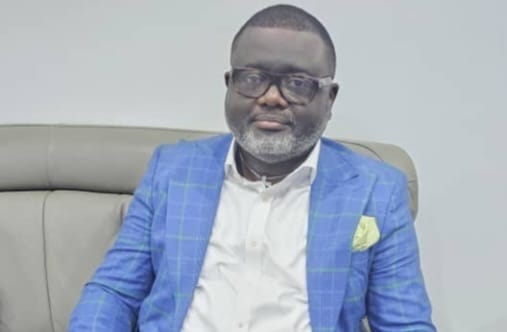
By Jones Onyereri
The assertions that President Tinubu’s intervention in Rivers State constitutes an unconstitutional power grab or a “military coup in civilian disguise” fundamentally misrepresent the legal, political, and security realities that necessitated federal action. Far from being a partisan maneuver, the declaration of a state of emergency and subsequent measures were lawful, proportionate, and grounded in the imperative to prevent a total collapse of governance and public order. Below is a thorough rebuttal to the allegations:
The Nigerian Constitution explicitly empowers the President to declare a state of emergency under Section 305 when there is a clear threat to public safety or a breakdown of governance. The escalation of pipeline vandalism by militants—which crippled economic activity, endangered lives, and exacerbated environmental degradation—coupled with the Supreme Court’s February 18 judgment highlighting governance failures in Rivers State, provided incontrovertible justification for federal intervention. The claim that “no emergency existed” ignores the state government’s demonstrable inaction in addressing these threats, which risked spiraling into wider violence. Emergency powers are, by design, temporary and exceptional, aimed at restoring stability, not undermining democracy.
The appointment of Admiral Ibok-Ete Ibas as Sole Administrator aligns with constitutional provisions for federal intervention during crises. Section 11 of the Constitution permits the National Assembly to legislate for a state in extraordinary circumstances, and the President’s action enjoys implicit legislative backing as a stopgap to avert anarchy. Admiral Ibas, a retired military officer with no overt political ties, was selected for his administrative expertise, not as a proxy for any faction. His mandate is strictly limited to stabilizing the state, facilitating the return to democratic governance, and ensuring the security forces can operate without partisan interference. To equate this with a “military coup” is hyperbolic and disregards the transparent, legal framework guiding his role.
Critics allege defiance of Supreme Court orders regarding state funds, but this misinterprets the interplay between judicial mandates and emergency executive authority. While the Court initially restricted financial flows to Rivers State due to governance disputes, the escalation of the crisis necessitated federal release of funds under the “doctrine of necessity” to sustain critical services like healthcare, education, and infrastructure. The Constitution prioritizes the security and welfare of citizens (Section 14(2)(b)), and the President’s duty to uphold this principle supersedes rigid adherence to procedural norms during emergencies.
The Sole Administrator’s actions, including the formulation of regulations and restructuring of local government administrations, operate within the bounds of his provisional mandate. These regulations require approval by the Federal Executive Council (FEC), ensuring oversight and accountability. The replacement of local government officials was not a “power grab” but a necessary step to dismantle networks complicit in revenue diversion or inefficiency. The Supreme Court’s insistence on democratically elected local governments remains sacrosanct, but interim appointments during emergencies are globally recognized mechanisms to restore functionality before elections can be organized.
Claims that the Administrator has overstepped by preparing a budget or appointing a Secretary to the State Government (SSG) ignore the practical realities of governance. In the absence of a functional State Assembly, provisional budgets based on existing frameworks ensure continuity of public services. Similarly, the appointment of an SSG—a routine administrative role—falls within the Administrator’s authority to maintain bureaucratic operations. These measures are neither permanent nor unconstitutional; they are transitional tools to prevent total institutional paralysis.
The narrative that this intervention serves Minister Wike’s political interests is speculative and distracts from its stated purpose. Restructuring boards and commissions, including the Rivers State Electoral Commission, aims to depoliticize institutions vital to free and fair elections. The focus on “Wike loyalists” assumes nefarious intent without evidence, whereas the Administrator’s appointments could equally reflect efforts to engage experienced personnel familiar with the state’s administrative landscape. The assertion that federal actions target Governor Fubara’s allies conflates routine accountability with persecution; in crises, restructuring is inevitable to eliminate inefficiency or bias.
Regarding the House of Assembly reconstruction, federal involvement ensures the project adheres to timelines and standards, avoiding further delays that could destabilize legislative functions. The Governor’s progress, while commendable, does not negate the need for independent oversight in a volatile environment.
President Tinubu’s intervention is neither indefinite nor authoritarian. Emergency measures will lapse once security is restored, and democratic structures are reinstated. The National Assembly retains the authority to review and curtail these actions under Section 11, ensuring checks and balances. To frame this as a “2027 political takeover” is a cynical distortion of a lawful, necessary intervention to prevent Rivers State from descending into chaos.
In conclusion, the allegations of a “civilian coup” or unconstitutional power grab disregard the constitutional safeguards and urgent pragmatic considerations guiding federal actions. The President’s duty to protect lives and livelihoods in Rivers State transcends political expediency. While vigilance against overreach is prudent, dismissing all stabilization efforts as partisan machinations undermines the legitimate pursuit of peace and order. The people of Rivers State deserve functional governance, not perpetual crisis—and federal intervention, however imperfect, is a constitutional means to that end.
Rt Hon Sir Jones Onyereri PhD, KSP, FCIPAN
April 12, 2025
-

 News8 hours ago
News8 hours agoSHOCKING! One month after giving birth, woman discovers another baby in her womb
-

 News8 hours ago
News8 hours agoTears, anguish as Plateau Community buries 51 killed by bandits
-

 News8 hours ago
News8 hours agoAngry investors raid CBEX office, loot assets in Ibadan after digital Platform crash
-

 News14 hours ago
News14 hours agoPeter Obi speaks as Benue govt. blocks humanitarian visit
-

 News15 hours ago
News15 hours agoFUOYE VC suspended over sexual harassment allegations
-

 News6 hours ago
News6 hours agoCBEX: 60 fraudulent Ponzi scheme operators to avoid in Nigeria
-

 News8 hours ago
News8 hours ago‘Not something I’d wish on anyone’ — Melinda Gates opens up on divorce
-

 Politics8 hours ago
Politics8 hours agoIgbo Youths Set To Mobilize 5 Million Man-March In Support Of Tinubu, Kalu






